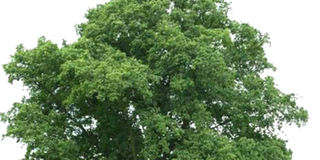Stop the blame game, protect our trees

What you need to know:
At this rate, this major source of tree planting material will soon be on the list of the endangered, along with the trees it is supposed to save from extinction.
Uganda is probably the only country in the world where land “shrinks”. Take, for instance, the National Tree Seed Centre and Nursery at Kazinga near Namanve. It once covered 100 acres. Then, it started shrinking. Today, it hardly covers 40 acres.
At this rate, this major source of tree planting material will soon be on the list of the endangered, along with the trees it is supposed to save from extinction.
Are we still surprised that the forest cover is receding at 92,000 hectares a year, a trend that has got the President concerned?
While launching a tree planting campaign recently, he lashed out at National Forest Authority (NFA) for not doing enough to stop the ongoing “tree genocide”. Visibly peeved, the President wondered whether it made sense planting new trees when old ones were being felled with impunity.
Who is responsible?
The comment reminds me of another made by the late Dr Jack Barlow in 1979. It was about the security situation then. On behalf of the medical fraternity, he wondered whether it made sense to save lives, only to lose them at the hands of gunmen.
Back to tree planting. Does it make sense planting new trees when the old ones are being cleared at the rate of 92,000 hectares a year? Of course, it does.
Like those medics who continued treating gunshot victims, we have to plant new trees, even when old ones are being felled.
But we need to ask pertinent questions. Who is cutting down trees and why? The answer will help us to protect these trees.
So, who is behind this tree genocide? As a farmer, I feel terrible admitting this.
But truth be told, a lot of this deforestation is carried out by farmers with support of political leaders.
Behind every axe-wielding farmer, stands a vote-hunting politician. Just look around. Farmers are clearing forests in the name of feeding the nation.
Supported by their political leaders, they cut the trees to make charcoal and then use the land to grow crops and graze their herds. Instead of stopping them, the political leaders use their offices, to defend these criminal acts. Most of the trucks that ferry charcoal from rural areas to urban markets are owned by politicians and security.
That is why they are always overloaded and in poor mechanical condition. No one can arrest them. This political patronage explains the tree genocide.
Pastoralists and their animals are invading central forest reserves, especially those in or bordering the cattle corridor, claiming it is their land. When NFA officials ask them to produce proof of ownership, the pastoralists arrogantly assure them how their titles are in State House. The officials back off, and the tree genocide continues.
Strange that State House has not disowned these pastoralists, or got them from the forests. Instead, the President blames NFA for not doing enough. In our society, elders do not err.
The trees on private land are not spared either. Again, the farmer and the politician are responsible.
In Luweero, Nakaseke and Kayunga districts, farmers are clearing natural forests to grow pineapples and other crops they believe produce more under monoculture farming systems. Sugarcane growing has left several districts in eastern Uganda with zero forest cover.
Ironically, it is the same farmers complaining about erratic and destructive rains a direct consequence of deforestation.
Bush burning towards the rainy season is a primitive practice that persists because farmers think it makes the land more productive.
Of course it does not. Instead, it destroys the soil exposing it to erosion.
My appeal to all Ugandans, starting with the President, is to stop blaming each other but acknowledge our individual roles in the genocide and change the situation.
Urban dwellers are quick to blame the rural poor for destroying our forests. It would take a ban on charcoal trade, for these smug urbanites to realise their role. While they don’t own an axe, each time they light a charcoal stove, they are in effect cutting a tree.
What can we do?
More than 90 per cent of Ugandans use wood fuel to cook their food. Chances are, those sumptuous dinners you enjoy in five-star hotels are prepared using charcoal. The sauna you frequent uses firewood. The bread you enjoy is baked in wood-fired ovens. Without charcoal, the “rolex” industry, which employs many youths in urban centres would not survive.
The average Ugandan can easily live without electricity but it is almost impossible to survive without charcoal.
There are two things we can do. One is to plant more trees. The other is to promote alternative sources of energy.
We need to encourage people to plant trees. You do not need to own a huge chunk of land to plant trees. You can indirectly plant trees by donating seedlings to individuals and institutions that have land.
Many religious and cultural institutions have idle land, which can be put to better use. You can express your support for these institutions, by donating tree seedlings to plant on their land. The trees will generate income while protecting their land.
The other thing we can do is to promote alternative energy sources such as solar and bio gas.
It is the duty of every Ugandan to protect our trees. They are nature’s gift to us.
We cannot claim to be gifted by nature, when we have failed to look after these gifts. How would you feel, if someone abused a gift you gave them? That is how Mother Nature feels when we cut trees.
Now, you know why drought and floods have become more frequent. Mother Nature is upset.
The author is a farming journalist
and a consultant.
E-mail: [email protected]




